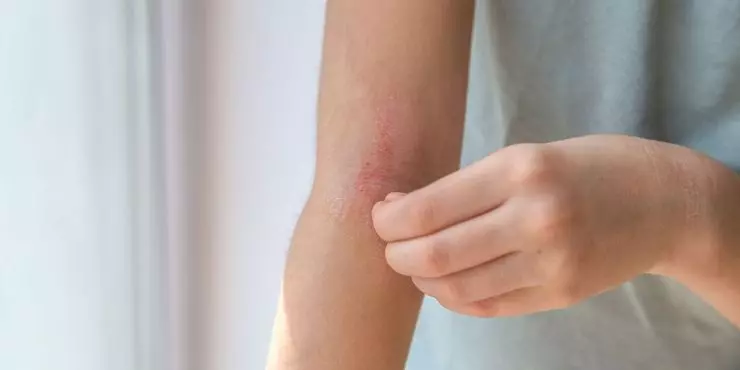
Eczema, or atopic dermatitis, is a common skin condition that causes dry, itchy, and inflamed skin. While it can occur year-round, many people find that their symptoms worsen during the colder, dryer months. The combination of cold outdoor air and dry indoor heat can wreak havoc on sensitive skin, making winter an especially challenging time for those managing eczema. But don’t worry—with the right care and strategies, you can soothe your skin and minimize flare-ups all winter long.
What is Eczema?
Eczema is a chronic skin condition that affects both children and adults. It’s characterized by patches of dry, red, and inflamed skin that can feel itchy or even painful. While the exact cause of eczema isn’t fully understood, it’s believed to result from a combination of genetic, environmental, and immune system factors. Common triggers include allergens, irritants, stress, and weather changes, making winter a prime time for flare-ups.
Eczema isn’t contagious, but it can significantly impact quality of life if not managed effectively. The key to controlling eczema is understanding your triggers and adopting a consistent skincare routine tailored to your needs.
How to Know if it’s Eczema
Eczema often appears as patches of inflamed skin that can vary in color and texture depending on your skin tone and the severity of the condition. Here are the common visual signs:
Redness or Discoloration
- On lighter skin tones: Eczema often looks red or pink.
- On darker skin tones: It may appear as brown, gray, or purple patches.
Dry, Scaly Skin
- Affected areas often become rough, flaky, or scaly.
- Severe dryness may cause cracking or peeling.
Rashes
- These rashes can look like small bumps, raised areas, or thickened skin over time (a result of frequent scratching).
- Rashes often occur on the face, neck, inner elbows, wrists, knees, or ankles, though they can appear anywhere.
Oozing or Crusting
- In some cases, eczema patches may weep clear fluid or develop crusty areas due to scratching or secondary infections
Swelling
- Inflamed areas may become swollen and tender to the touch.
What Eczema Feels Like
Eczema can be extremely uncomfortable and may cause the following sensations:
Intense Itching: Itching is often the hallmark symptom of eczema.The itch can be so severe that it disrupts sleep or daily activities, and scratching may lead to further irritation.
Burning or Stinging: Inflamed areas may feel hot, tender, or even painful.
Tightness or Roughness: Dry, scaly patches can make the skin feel tight, rough, or thickened.
Sensitive or Irritated Skin: Skin affected by eczema may feel more sensitive to touch, fabrics, or environmental factors like cold weather or heat.
The best way to understand if you have eczema is to get checked out by your doctor. If you suspect you may be experiencing eczema talk to your doctor today to learn how to best treat it or learn if it is some other type of skin condition requiring a different treatment.

Why Is Eczema Worse in the Winter?
During the winter months, low humidity levels outside and heated indoor air can strip your skin of its natural moisture. This dryness weakens the skin barrier, making it more susceptible to irritation and flare-ups. Additionally, common winter habits, like taking long, hot showers or wearing wool sweaters, can exacerbate symptoms by further drying out or irritating the skin.
Tips for Managing Eczema in the Winter
Moisturize Frequently and Effectively
Hydration is essential for eczema-prone skin. Use a thick, fragrance-free moisturizer or emollient several times a day, especially after bathing or washing your hands. Look for ingredients like ceramides, glycerin, and hyaluronic acid, which help restore the skin barrier. Ointments or creams are often more effective than lotions during the winter. Some of our recommendations include:
- Vanicream Moisturizing Cream
- Eucerin Eczema Relief Cream
- Aquaphor Healing Ointment
- CeraVe Moisturizing Cream
- Aveeno Eczema Therapy Moisturizing Cream
- Vaseline Intensive Care Advanced Repair Unscented Lotion
- La Roche-Posay Lipikar Balm AP+
Avoid Long, Hot Showers
While a hot shower might feel comforting on a cold day, it can strip your skin of its natural oils, worsening dryness. Opt for lukewarm water and limit showers to 10-15 minutes. Use a gentle, fragrance-free cleanser and pat your skin dry with a soft towel before applying moisturizer.
Invest in a Humidifier
Indoor heating can make the air in your home extremely dry. Using a humidifier can help maintain moisture levels in the air, reducing the impact of dryness on your skin. Place a humidifier in your bedroom or living areas for the best results.
Wear Eczema-Friendly Clothing
Certain fabrics, like wool and synthetic materials, can irritate sensitive skin. Stick to soft, breathable fabrics like cotton, and avoid tight-fitting clothes that can rub against the skin. Layering is also helpful—wear a cotton layer beneath heavier sweaters or jackets to protect your skin.
Be Mindful of Your Triggers
Winter allergies, stress, and certain skincare products can trigger eczema flare-ups. Pay attention to what seems to worsen your symptoms and try to avoid those triggers. Opt for hypoallergenic, fragrance-free skincare products to reduce irritation.
Stay Hydrated and Eat Skin-Friendly Foods
Drinking plenty of water and consuming foods rich in omega-3 fatty acids, such as salmon, walnuts, and flaxseeds, can support skin health. Vitamin D, often lacking during the winter months, may also help—check with your doctor to see if supplementation is right for you.
Use Prescription Treatments if Needed
If over-the-counter treatments aren’t enough to control your eczema, consult your healthcare provider. Prescription topical steroids, non-steroidal creams, or other medications may be necessary to manage severe symptoms.
When to See a Doctor
While many people can manage eczema with at-home care, it’s important to seek medical advice if:
- Your symptoms are severe or worsening.
- Over-the-counter treatments aren’t providing relief.
- You develop signs of infection, such as redness, warmth, or oozing.
A doctor can help tailor a treatment plan to your needs, ensuring your skin stays as healthy as possible throughout the winter.
Manage Your Eczema This Winter
Eczema can be challenging, especially during the winter months, but with the right strategies and support, you can keep your skin comfortable and healthy. By moisturizing regularly, protecting your skin from irritants, and addressing your triggers, you can minimize flare-ups and enjoy the season with confidence.
If you’re struggling with eczema this winter or have questions about managing your symptoms, our team at Northwest Family Clinics is here to help. Schedule an appointment today to discuss a personalized care plan for your skin health.
Here’s to a comfortable, itch-free winter!
Other Articles You Might Like:
Healthy Hearty Winter Recipes – Simple Switches
Winter Sport Safety for All Ages for Enjoying Cold-Weather Activities
Winter Wellness - Avoiding sickness, exercise, eating well and more